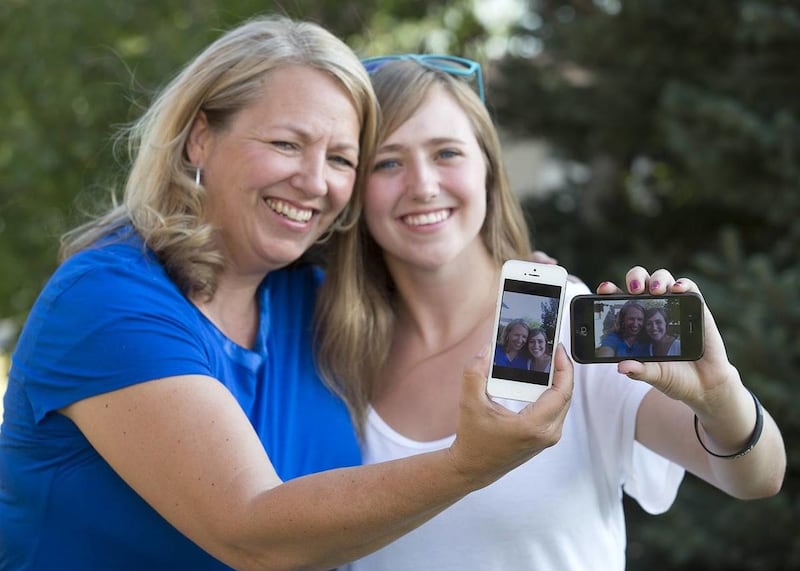Social media sites can be useful tools to parents of teenagers, but only half of parents use them, according to a new study from the BYU School of Family Life.
The study, which appeared in the journal Cyberpsychology, Behavior, and Social Networking, surveyed 500 families with teenagers about their social media habits. Of the participants, 100 percent of teens reported social media use of some kind, but only 50 percent of parents had social media accounts, lead author Sarah Coyne said.
"There were really two types of parents [in the study]," Coyne said. "Parents who used technology as a tool … and others who were afraid of technology. They preferred to keep their heads buried in the sand."
For those participants whose parents used social media, regular but unobtrusive interaction built stronger parent-child relationships, Coyne said. Social media give parents a window into their teens' lives, keeping them appraised of life events, who their friends are and what their teens think is cool or interesting. These sites also give parents an opportunity to show their support for their teens, if they take the time to comment or like what their teens post.
Social media shouldn't replace face time, Coyne said, but could supplement and strengthen parents' relationships with their children.
"It's not a magic bullet, but it helps to cement that relationship," she said.
However, it is possible for parents to go overboard, Coyne said. If parents are publicly critical of their teens' actions, or if they post embarrassing comments or pictures — such as a picture Coyne's sister once posted of Coyne wearing headgear — interaction through social media can backfire.
Excessive social media use can also be problematic. Some teens in the study, who reported six, seven or more hours spent on social media, also reported negative social behaviors and were more likely to feel depressed or aggressive, Coyne said. The American Academy of Pediatrics recommends no more than two hours of screen time per day.
On the flip side, those teens who used social media moderately and who interacted constructively with their parents experienced positive social benefits, including decreased depression and aggression. They were more likely to act generously or kindly toward others.
BYU family life professor Laura Padilla-Walker co-authored the social media study.
EMAIL: epenrod@deseretnews.com




